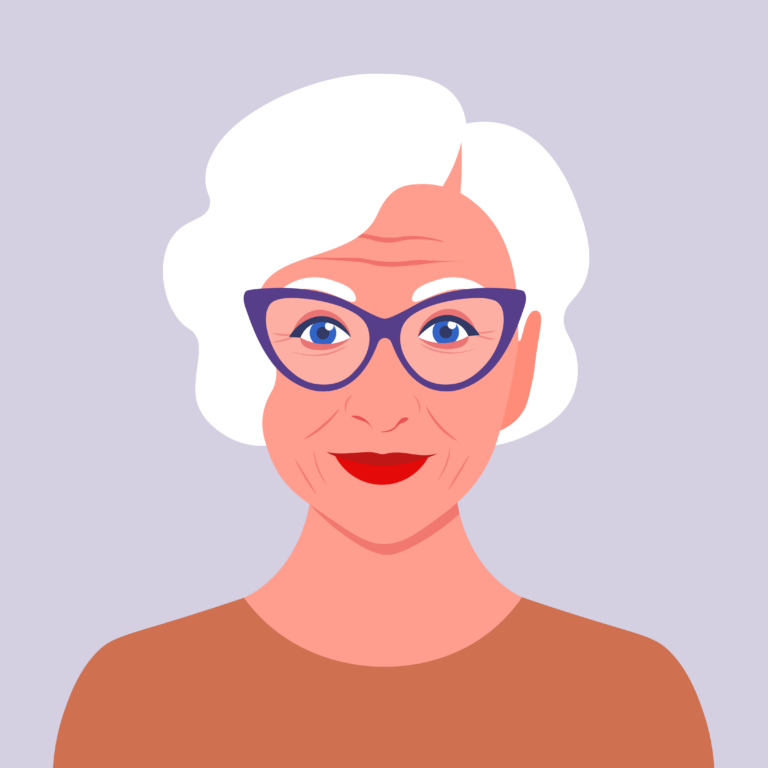Want more on this topic?
Check out these posts:
This size screen isn't yet supported. We're working on that.
An eNewsletter for Aging Magnificently — ISSUE 5
At Lifespark we’re all about helping you stay healthy at home, navigating your health options with confidence, and living a fuller, more independent life. That’s what The A.M. Post is all about, too. Read on — we hope you enjoy!
A groundbreaking survey released by Age Wave and The John A. Hartford Foundation reveals widespread dissatisfaction among older adults with the U.S. health care system. That doesn’t come as a surprise. But what was most interesting is what older adults want – they want their providers to spend more time discussing health and well-being over preventing disease, medications, and maintaining physical fitness. In other words, you want to focus on what matters to you.
The problem though is that it’s hard to find a provider able to spend time sitting down with you to talk about all those things that matter. Add to that, 30% of seniors see more than five doctors, all of whom seldom talk to each other. That leaves you in the middle trying to understand and connect the dots. It’s no wonder so many feel frustrated and disconnected. “The idea that you could get more out of your health care seems a bit far-fetched in the current system,” explained Dr. Nick Schneeman, Lifespark Chief Medical Officer, who has dedicated his career to recentering health around seniors on their terms.
When seniors get overwhelmed or confused, that’s when they end up on what Dr. Nick calls the roller coaster of health crises. That fragmented experience resonated with Ron, a Lifespark COMPLETE member, who suddenly found himself undergoing heart bypass surgery. With an active life and four thriving businesses, he had no desire to deal with complicated health care.
The day after Ron was discharged, his Lifespark Life Manager stopped by his house on her way home. “She checked my vitals and my overall health, and then we ended up talking for another hour—about the health care system, how to expand access to good medical care, about entrepreneurship, my daughter, her kids, and the U.S. Senator I was campaigning for,” he said. She took the time to get to know what mattered most to Ron and for the next eight months, she stopped by frequently to check his vitals, stay connected, and communicate directly with his primary care doctor at North Memorial Health and cardiologist to touch base on where he was. “I fell in love with Lifespark because of Kelly and the excellent care I got,” he said.
Ron didn’t have to do anything but enjoy what he wanted to do while his Life Manager coordinated his health around him bringing in additional options like home health or in-home caregiving and nursing as he needed it without Ron having to coordinate it himself.
That experience is right in line with what older adults really want – an integrated health experience centered around them. In fact, 97% of the seniors polled said health is about doing what they love, not all the medical stuff. Connecting with a provider team that understands this, especially as the number of adults 65+ is expected to rise by 30%, is why studies like the John A. Hartford Foundation one are so important.
The study revealed, “more than previous generations, Boomers seek to ‘own’ their health and actively manage their relationships with health care providers.” As Ron shared about his experience, he didn’t want to just recover, he wanted to know what he needed to do to function at the highest level possible so he could get back out on the campaign trail.
Studies and stories are one thing but what matters to you? Once you identified that, you can take action by:
Sharing those key things with your primary care at your next appointment
———
Telling your children what you want and what you don’t want as you age
———
Keeping your goals nearby so you can see the progress you are making
———
Aligning with a health care team that understands you and aligns health around your goals
Getting what you want out of your health care experience is not as far-fetched as you might think, it may even be a call away.

There’s a lot of buzz in the news lately about urgent care or ER at home models popping up across the country. Some say it’s because of the aftermath of the pandemic – true, that opened a whole new wave of opportunities to get care delivered at home covered by insurance. But the bigger trend could point to what the Boomers have been able to do like no other generation – change the course of history. They know what they want and what they don’t. And being in the hospital or taking time out of living life on their terms is not part of the agenda. They want convenience, simplicity, and trust. Perhaps that’s what’s really going on here. Either way, it’s making news and a big impact on the health of seniors…
Older people who wait overnight in the emergency department due to hospital bed shortages are more likely to die or have new health problems during their stays, according to a large new study...
Why house calls for seniors are often easier, cheaper, and more convenient...
You read that right: inpatient-style care for serious medical issues within the comfort of one’s home...
Better for seniors. Better for emergency departments.

Dear Ethel,
I have been with my primary care provider for years, but I’ve been hearing more and more that they should have more geriatric training. I am not sure at this stage in my life I want the hassle of switching. Do you think I should?
~ Questioning Switching in Bloomfield
———————————————————————
Dear Questioning Switching,
First, good for you for being so proactive about your own health.
The idea that primary care should be experts in geriatrics (or as we say ‘senior savvy’) is right in line with what many people are thinking. In fact, 94% of older adults agree that health care providers should be trained in the unique needs of older adults. It’s something to think about, especially if you take more than five medications and see more than two specialists for chronic conditions. Someone who specializes in seniors specifically can help you manage all of that and align on what’s important to your health and goals.
As the body ages, a lot changes that many primary care providers aren’t in tune with. For example, a medication dosage for you at 65 may be very different than when you are 80 because of how the body metabolizes medications as you age. A provider who has geriatric expertise would know this. You’d be surprised at how often this is overlooked.
I also like to think about this question in this way – who did you bring your children to when they were younger? Probably a pediatrician who understands children at each of the developmental stages; the same goes for those in elderhood. We just need different things, resources, and perspectives as we age.
For those primary care providers who are geriatric experts or are geriatricians with a certification in this specialty (by the way Lifespark has several who are) they focus their visits a little differently, often starting with what’s important to you. Conversations are geared towards your goals, medication reviews that cover not so much what you are taking but why, a focus on chronic and acute illness and simplifying the complexities that goes with it, and advance care planning so that no matter what life has in store, your wishes are met.
Now to the question you asked – should I switch? That is a personal decision that I can’t advise you on. What I can (and hopefully did) is share a few things to consider. If the above things matter to you, then yes, you should look into it. It all comes down to what you want out of your health and life. Does your current provider listen to you, direct your health around what you want, or are they giving you just the bare minimum in time and focused on medications, medications, and medications?
The easy part, if you’re a Lifespark COMPLETE member, you already have access to geriatric-trained medical experts and the key would be to call them now and get your annual wellness visit scheduled if you haven’t already. It’s a great way to test if their approach meets your needs better and it becomes an easy transition (you can keep both).
Stay in touch – would love to hear what you decide and how it’s going.
In health,
Ethel
Ageism is stereotyping and discrimination on the basis of a person’s age. Ashton Applewhite, author of This Chair Rocks and anti-ageism activist, said “We experience ageism any time someone assumes that we’re “too old” for something — a task, a haircut, a relationship—instead of finding out who we are and what we’re capable of.”
Amy Wickman, RN, Vice President, Clinical Services at UCare, shared that the common stereotypes about older adults such as they’re slow, incapable, or out of touch—are damaging to our members’ emotional and physical health. “When health care workers act on these stereotypes, they’re not only being disrespectful, but they’re also taking away the client’s voice,” she said.
“That’s one of many things we value at Lifespark – our members’ voice,” said Dr. Nick Schneeman, Chief Medical Officer “Age isn’t how we define someone’s health experience. We support them by achieving the goals they want out of the life they have left; that is an ageless opportunity. Teaching our teams about the realities of ageism is a very real part of our onboarding and education and how we preserve the uniqueness of who our members are.”
We all play a role in combating ageism. It’s in our language for how we talk about ourselves – ‘I’m too old for that,’ or others – ‘at 75, he’s still bike riding!?’ Or a doctor assuming your falls are just part of ‘normal aging’ when it’s really that new medication.
Your health team shouldn’t assume that just because you are aging means you and your health and life goals are irrelevant. They aren’t. The only person capable of defining you is YOU – that’s what aging magnificently is all about.
Funny thing about fashion is, it always comes back. And what you have in your closet – those outdated coats, polyester pants, fur stole wrap, or those geometric shifts – keep them. Unlike your own kids, your grandkids want them.
Vintage, which is defined by something that is 20 or more years old, is the hottest trend right now. It’s sustainable, less expensive, allows them to be more expressive and unique, and it’s just well, cool.
But it’s more than just clothing, teens and young adults are looking for records, holiday decorations, signs or posters, even furniture. Think about those bags of old purses, even the one you splurged on at Crossroads Shopping Center.
Before you bring that bag of clothes to Goodwill or household items to the local thrift store, see if your grandkids have any interest. As you show them some of those pieces, share your stories of where you were when you wore it or what was happening in the world when you bought it. It’s a great connector that bonds who you were at their age to who they are.
In that respect vintage isn’t just cool, it’s timeless.

Aging magnificently is personal. It means something different to every client we serve and that’s the best part. Lifespark sat down with a few folks asking them ‘what does aging magnificently mean to you?’ Their words are not only profound and inspiring but as real as it gets. How they are aging is pretty magnificent to us – enjoy!